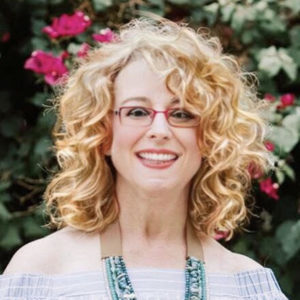 As a FUSE executive fellow, Debbie Allen worked with the city of St. Louis to help criminal justice stakeholders evolve their local system to become fairer and equitable along the lines of race, gender, socio-economic status, and geography. The city’s criminal justice system comprises federal, state, and local agencies. To allow these agencies to work together under a shared vision and purpose, Debbie helped bring about an ordinance that established a Criminal Justice Coordinating Council (CJCC) as a separate, legal body corporate and politic. That framework then allowed state and local criminal justice agencies to come together to enter into legally binding agreements that respect the legal and constitutional boundaries for sharing criminal justice and behavioral health information and data across the disciplines.
Debbie is now an executive adviser to the Mayor and the interim executive director of the CJCC. The CJCC is also working to transform the local criminal justice system through data-driven policy and fiscal decisions. This work includes identifying more effective, evidence-based services that support individual behavior change, as well as promoting new justice system policies and practices that better align resources to promote public safety and healthy communities. The overall goal is to provide policymakers greater choice and confidence in the priorities and programs they oversee, thus building trust with the community.
As a FUSE executive fellow, Debbie Allen worked with the city of St. Louis to help criminal justice stakeholders evolve their local system to become fairer and equitable along the lines of race, gender, socio-economic status, and geography. The city’s criminal justice system comprises federal, state, and local agencies. To allow these agencies to work together under a shared vision and purpose, Debbie helped bring about an ordinance that established a Criminal Justice Coordinating Council (CJCC) as a separate, legal body corporate and politic. That framework then allowed state and local criminal justice agencies to come together to enter into legally binding agreements that respect the legal and constitutional boundaries for sharing criminal justice and behavioral health information and data across the disciplines.
Debbie is now an executive adviser to the Mayor and the interim executive director of the CJCC. The CJCC is also working to transform the local criminal justice system through data-driven policy and fiscal decisions. This work includes identifying more effective, evidence-based services that support individual behavior change, as well as promoting new justice system policies and practices that better align resources to promote public safety and healthy communities. The overall goal is to provide policymakers greater choice and confidence in the priorities and programs they oversee, thus building trust with the community.


Bringing Equity to the Forefront of Local Justice Systems
August 18, 2020
 As a FUSE executive fellow, Debbie Allen worked with the city of St. Louis to help criminal justice stakeholders evolve their local system to become fairer and equitable along the lines of race, gender, socio-economic status, and geography. The city’s criminal justice system comprises federal, state, and local agencies. To allow these agencies to work together under a shared vision and purpose, Debbie helped bring about an ordinance that established a Criminal Justice Coordinating Council (CJCC) as a separate, legal body corporate and politic. That framework then allowed state and local criminal justice agencies to come together to enter into legally binding agreements that respect the legal and constitutional boundaries for sharing criminal justice and behavioral health information and data across the disciplines.
Debbie is now an executive adviser to the Mayor and the interim executive director of the CJCC. The CJCC is also working to transform the local criminal justice system through data-driven policy and fiscal decisions. This work includes identifying more effective, evidence-based services that support individual behavior change, as well as promoting new justice system policies and practices that better align resources to promote public safety and healthy communities. The overall goal is to provide policymakers greater choice and confidence in the priorities and programs they oversee, thus building trust with the community.
As a FUSE executive fellow, Debbie Allen worked with the city of St. Louis to help criminal justice stakeholders evolve their local system to become fairer and equitable along the lines of race, gender, socio-economic status, and geography. The city’s criminal justice system comprises federal, state, and local agencies. To allow these agencies to work together under a shared vision and purpose, Debbie helped bring about an ordinance that established a Criminal Justice Coordinating Council (CJCC) as a separate, legal body corporate and politic. That framework then allowed state and local criminal justice agencies to come together to enter into legally binding agreements that respect the legal and constitutional boundaries for sharing criminal justice and behavioral health information and data across the disciplines.
Debbie is now an executive adviser to the Mayor and the interim executive director of the CJCC. The CJCC is also working to transform the local criminal justice system through data-driven policy and fiscal decisions. This work includes identifying more effective, evidence-based services that support individual behavior change, as well as promoting new justice system policies and practices that better align resources to promote public safety and healthy communities. The overall goal is to provide policymakers greater choice and confidence in the priorities and programs they oversee, thus building trust with the community.
 As a FUSE executive fellow, Debbie Allen worked with the city of St. Louis to help criminal justice stakeholders evolve their local system to become fairer and equitable along the lines of race, gender, socio-economic status, and geography. The city’s criminal justice system comprises federal, state, and local agencies. To allow these agencies to work together under a shared vision and purpose, Debbie helped bring about an ordinance that established a Criminal Justice Coordinating Council (CJCC) as a separate, legal body corporate and politic. That framework then allowed state and local criminal justice agencies to come together to enter into legally binding agreements that respect the legal and constitutional boundaries for sharing criminal justice and behavioral health information and data across the disciplines.
Debbie is now an executive adviser to the Mayor and the interim executive director of the CJCC. The CJCC is also working to transform the local criminal justice system through data-driven policy and fiscal decisions. This work includes identifying more effective, evidence-based services that support individual behavior change, as well as promoting new justice system policies and practices that better align resources to promote public safety and healthy communities. The overall goal is to provide policymakers greater choice and confidence in the priorities and programs they oversee, thus building trust with the community.
As a FUSE executive fellow, Debbie Allen worked with the city of St. Louis to help criminal justice stakeholders evolve their local system to become fairer and equitable along the lines of race, gender, socio-economic status, and geography. The city’s criminal justice system comprises federal, state, and local agencies. To allow these agencies to work together under a shared vision and purpose, Debbie helped bring about an ordinance that established a Criminal Justice Coordinating Council (CJCC) as a separate, legal body corporate and politic. That framework then allowed state and local criminal justice agencies to come together to enter into legally binding agreements that respect the legal and constitutional boundaries for sharing criminal justice and behavioral health information and data across the disciplines.
Debbie is now an executive adviser to the Mayor and the interim executive director of the CJCC. The CJCC is also working to transform the local criminal justice system through data-driven policy and fiscal decisions. This work includes identifying more effective, evidence-based services that support individual behavior change, as well as promoting new justice system policies and practices that better align resources to promote public safety and healthy communities. The overall goal is to provide policymakers greater choice and confidence in the priorities and programs they oversee, thus building trust with the community.